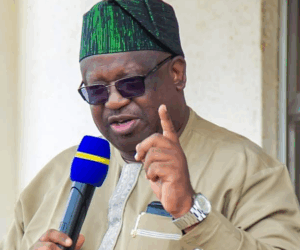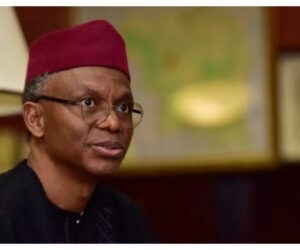Nigeria has generated more than ₦600 billion in Value Added Tax (VAT) from foreign digital service providers such as Facebook, Amazon, and Netflix. This was disclosed by Mr. Mathew Osanekwu, Special Adviser to the Chairman of the Presidential Committee on Fiscal Policy and Tax Reforms on Tax Policy, during a media practitioners’ workshop in Abuja. According to him, the feat represents a significant milestone in efforts to earn tax proceeds from foreign companies that have been operating in the nation’s cyberspace.
The Special Adviser explained that amendments made to the VAT Act allowed for non-resident companies to be brought into the tax net under Section 10 of the law. “These are not Nigerian entities, but they are now remitting VAT under Section 10 of the VAT Act.
“They are in Nigeria and also licensed as collection agents,” Osanekwu added. This does not allow Nigeria to capture taxes on services consumed locally, although they are being paid by foreign digital platforms.

₦600bn VAT and clarification on new taxes
The ₦600 billion collected represents an expansion of Nigeria’s digital services market and reveals the huge number of citizens relying on foreign platforms for entertainment, e-commerce, adverts, and other services. These businesses have hitherto remained out of Nigeria’s tax net despite their huge user base.
The reforms have now set them up to collect VAT from Nigerian consumers directly and remit to the FIRS. In the meantime, during the same event, spokesmen of the government clarified widespread speculations regarding new taxes during President Bola Tinubu’s administration.
Professor Taiwo Oyedele, Chairman of the Presidential Committee on Fiscal Policy and Tax Reforms, made it clear that no new taxes have been introduced. Instead, the reforms are focusing on restructuring existing taxes, consolidating multiple levies, and bolstering compliance.


“It’s not a new tax. No tax is being proposed. Some claimed that a tax is being proposed. Some believe that this president has presented tax after tax, and I challenge them to present them one newly added tax,” Oyedele said.
He explained that some of the existing taxes being debated in the public space, such as the 5% fuel levy, were once in law during the Tinubu regime. He also reminded the gathering that on July 2023, President Tinubu signed four executive orders suspending taxes levied in the dying hours of the previous administration, some of which were excise taxes on plastics and automobiles. Oyedele went on to note that the controversial Cybersecurity Levy was not new to this government, but had been put in place years back.
Major tax reforms to take effect in 2026
The broader tax reforms will be introduced in January 2026 as a measure to overhaul Nigeria’s underdeveloped tax administration, broaden the tax base, and increase compliance. The ratio of Nigeria’s tax to GDP is approximately 10.8 per cent, which is much below the African average of 16 per cent and the global target of 30 per cent.
The system offers relief for low- and middle-income taxpayers while ensuring equity throughout income deciles. Personal income tax rates have been re-adjusted in a way that Nigerians who earn less than ₦800,000 will not be required to pay for this. Small enterprises with a turnover of less than ₦100 million per annum will also enjoy a zero per cent corporate tax. For the affluent and large companies, the system will ensure greater fairness in contributions in the form of simple and transparent taxation.
The reforms will also aim to consolidate various overlapping taxes, tie revenues to specific projects, and ensure payments reach apparent development projects. This plan, according to Oyedele, will simplify compliance for taxpayers and increase accountability of public spending. Ensnaring domestic and overseas companies in the tax net, the government hopes to establish a more sustainable fiscal system that fosters long-term growth.


The ₦600 billion mobilised from foreign online platforms is only half of this initiative. With the recognition of the likes of international companies like Facebook, Amazon, and Netflix as VAT collectors in Nigeria, the country is slowly aligning its system with international standards.
It is a historic step towards closing revenue gaps, reducing reliance on oil earnings, and strengthening Nigeria’s economy, the government claims. With tax liability now being made to include foreign service providers in the Nigerian market, the government is ensuring that all individuals contribute their fair share to the growth of the country.








